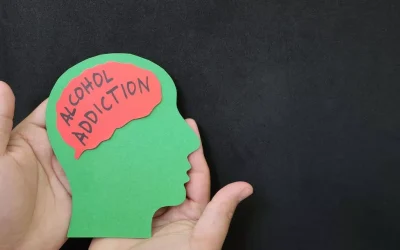Content
Each person’s level of intoxication differs according to age, sex, weight, and other factors. An individual’s breathing and blood circulation will be highly slowed, and motor responses and gag reflexes are nonfunctional. Their body temperature drops, and the individual at this stage is in danger of dying.
What are the behaviors of intoxication?
Behaviour. Rude, offensive, overly friendly, annoying, confused, aggressive, violent and inappropriate.
As alcohol physically limits your ability to drive, it also makes you less aware of what is happening to your safe driving abilities. You can gain confidence about driving, when you should not be driving at all. Because your vision is normally restricted at night, it is especially dangerous to drink and drive after dark.
The General Meaning of Public Intoxication
Gustafson (1991) found that, when offered a choice of an aggressive and non-aggressive response, women were much more inclined to use the non-aggressive response irrespective of alcohol dose. Lastly, a recent study (Dougherty et al., 1996) found that alcohol produced significant increases in women’s aggression on a point-subtraction laboratory measure of aggression. Immediate medical attention is imperative in the lead-up to this last stage of drunkenness, in order to prevent death from alcohol poisoning and/or other fatal symptoms. Indeed, at a BAC of .45 or above, you are probably going to die from alcohol poisoning.
What are 5 signs of intoxication?
- Becoming talkative or loud indicates lowered inhibitions.
- Using foul language or misbehaving, indicating impaired judgment.
- Moving very slowly or unfocused eyes displaying slowed reactions.
- Stumbling or swaying indicates a loss of coordination.
Treatment should take account of the effect of problematic drinking on the cognitive, biological, and social mechanisms that favor aggressive behavior. Blood alcohol content (BAC) is the amount of alcohol in the bloodstream. If someone were to have a BAC of .10, this would mean that one-tenth of 1% of the blood in their body is alcohol. The more alcohol a person consumes the more intoxicated and impaired they become.
History and Physical
Hospitalization, intravenous fluids, observation, and supportive treatment are necessary for severe instances. Speech slurring, lack of coordination, and changes in mood and behavior are all signs of alcohol consumption. To get immediate emergency medical assistance, dial 911 if you believe somebody may show signs of alcohol poisoning. Too much alcohol consumed too rapidly can cause problems with your breathing, heart rate, body temperature, and gag reflex and possibly cause a coma and even death. Showing signs of alcohol intoxication and taking other substances, such as drugs or medication, in addition to the alcohol. People cannot treat severe alcohol intoxication — or alcohol poisoning — at home.

The task itself consisted of 26 consecutive trials including a block of 12 trials followed by a transition trial, a second block of trials, and a final trial. The opponent’s shock choices stages of alcohol intoxication ranged from 1–4 in the first block and 5–8 in the second block of trials. The final trial also always had the ‘opponent’ choosing a 5; in this trial the subject always ‘won’.
What are the symptoms of alcohol intoxication?
Delirium Tremens and other withdrawal symptoms may beset the patient detoxing. These symptoms of alcohol poisoning are hazardous and may even be fatal. Therefore, it is advisable to detox in a rehab center with access to experienced professionals who can manage any alcohol poisoning symptoms and withdrawal complications. Medically supervised detox or MAT modalities allow the body to eliminate the alcohol in the system and gently wean the body off its dependence. It is the first stage of the We Level Up New Jersey alcohol treatment and the first step of treatment one should pursue before an alcohol addiction worsens. Given how serious the effects of alcohol poisoning can be, it is recommended that individuals limit their consumption to no more than one alcoholic beverage per hour and stay hydrated throughout any drinking period.
After drinking more than five drinks, your blood alcohol level increases to 0.09–0.25 gram%, which means you are entering the third stage of intoxication. It is where you begin to experience instability with your emotions, lack of control, slurring of speech, drowsiness, nausea, and looses your critical judgment. It is also the stage when people you are drinking with will notice who’s drunk and who’s not. Any of these symptoms of alcohol poisoning are signs that prompt medical attention is required. An individual blood alcohol level will now range from 25 to an extremely high 40 percent at this stage.
Alcohol Intoxication Symptoms Causes
These conclusions seem to suggest implicitly that women’s aggression is inconsequential. If you’ve been binge drinking, the effects of alcohol poisoning can last anywhere from several hours to several days. Obtain medical attention immediately if you or someone else shows signs of being poisoned by alcohol. The severity and duration of the symptoms depend on how much alcohol was consumed, how quickly it was consumed, the person’s weight, how hydrated they are, and how much food was in their stomach.
- Unlike acute alcohol intoxication, however, chronic drinking behavior and drinking patterns in the 12 months before the offense did not differ between violent and non-violent criminals.
- Typically, men require more alcohol to achieve the same BAC as women.
- Even though it is well known that being legally intoxicated results in significant deficits in thinking and decision-making, the courts do not accept this type of defense in the majority of cases.
These facts about the stages of drunkenness are therefore a sobering antidote to the notion that “getting drunk” is a harmless form of social entertainment. Alcohol poisoning can be caused by binging or drinking a large amount of alcohol quickly. It can also be caused by chronic alcohol abuse when someone drinks heavily over a long period. Alcohol poisoning occurs when the body absorbs more alcohol than it can process, and its effects can become increasingly more dangerous if left untreated. Everyone faces the risk of excessive alcohol consumption when drinking.
Alcohol intoxication, also referred to as drunkenness, ethanol intoxication, or alcohol poisoning in severe cases, is a temporary condition caused by drinking too much alcohol. The amount of alcohol needed for intoxication varies from person to person. In this stage, a person has reached a BAC of 0.35% to 0.45% and their body functions severely slow down, putting them at significant risk of slipping into a coma, which can then result in death. You are sober or mildly intoxicated if you consumed one or fewer alcoholic drinks over the course of an hour. Alcohol enters your bloodstream when you begin consuming and affects how your body and brain function very quickly.
- TIPS offers online courses that make sense for people who host events in their homes and for young adults who may be exposed to alcohol.
- Given how serious the effects of alcohol poisoning can be, it is recommended that individuals limit their consumption to no more than one alcoholic beverage per hour and stay hydrated throughout any drinking period.
- Alcohol intoxication occurs from drinking too much alcohol in a short period of time.
- The final trial also always had the ‘opponent’ choosing a 5; in this trial the subject always ‘won’.
In the United States, 86% of adults who are 18 years old and older drink, according to the National Survey on Drug Use and Health (NSDUH). Even though a large proportion of individuals drink, very few are aware of the behavioral cues of intoxication and how alcohol affects the body. Join us as we discuss https://ecosoberhouse.com/ behavioral cues and intoxication rate factors in this post. A person’s breathing and blood circulation will be extremely slowed. Their motor responses and gag reflexes are nonfunctional, and their body temperature drops. Any of these symptoms are signs that immediate medical attention is necessary.
Active excessive alcohol consumption is the second most frequent precipitating event for acute on chronic liver failure, with bacterial infection being the first. The most effective therapy for alcoholic liver disease is prolonged abstinence from alcohol. Alcohol can cause both acute and chronic effects on the cardiovascular system. Acutely, it can precipitate dysrhythmias such as atrial fibrillation, supraventricular tachycardia, and ventricular tachycardia and can lead to lethal arrhythmias in patients with myocardial infarction.

